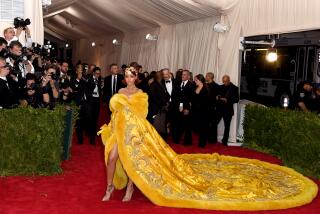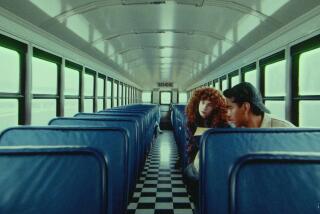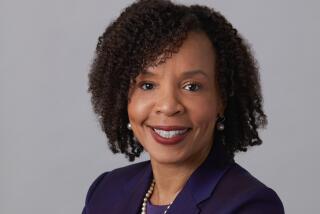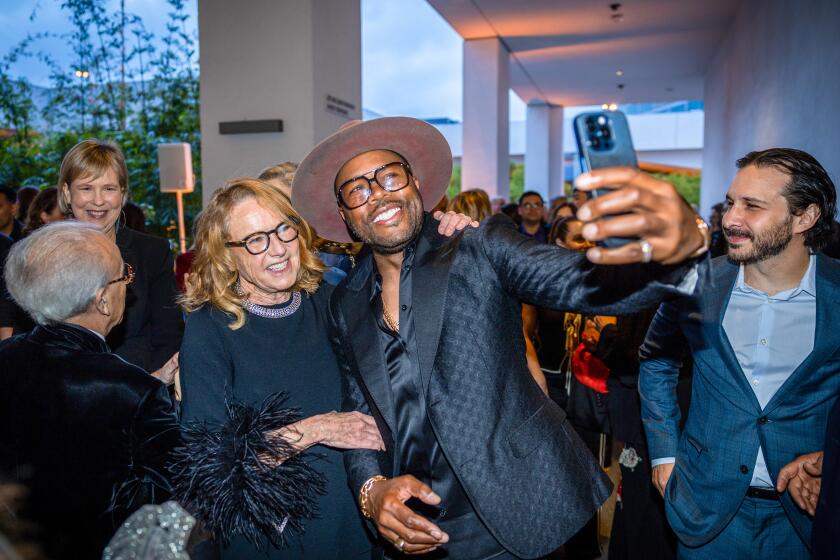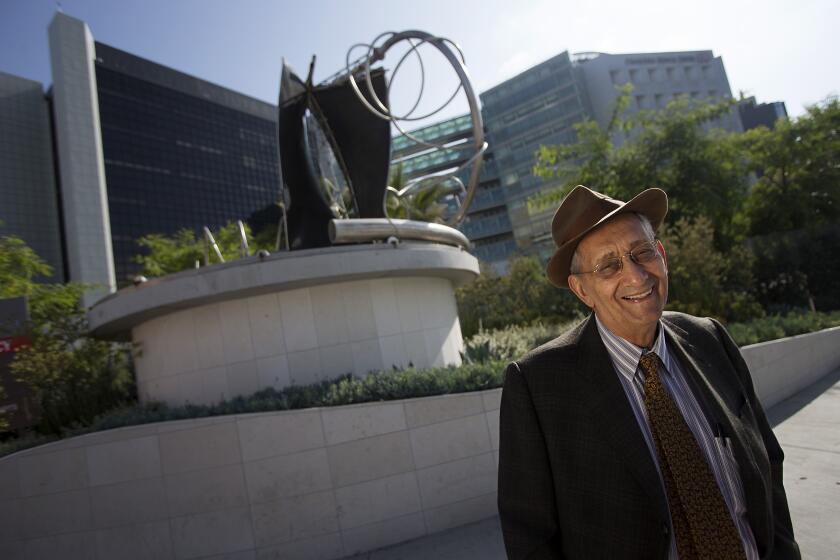Chambers Have Opened Doors for Eugene Drucker
Among the performers making their SummerFest ’88 debut is violinist Eugene Drucker. Local music audiences, however, will recognize him from appearances with the Emerson Quartet, in which he is first violinist. Last weekend Drucker slipped out of a SummerFest forum to offer his observations on the classical music scene.
The 36-year-old native New Yorker agreed that festivals such as SummerFest ’88 are symptomatic of the healthy state of chamber music in this country, even if American symphony orchestras are enduring a decade of fiscal disaster.
“Chamber music has been flourishing since before the 1980s,” he said, “even if it seems to be greater now. The reasons for the resurgence of chamber music’s popularity in the United States go back to the 1950s, when a great number of chamber music societies were formed by doctors and other people in the scientific community who had come from Europe escaping the Holocaust. Wherever they settled, they formed chamber music societies. But, before the early 1950s, for example, very few string quartets could make their living as full-time string quartets.”
Drucker’s father, Earnest, played with the noted Busch String Quartet after World War II, before he joined the Metropolitan Opera Orchestra. He grew up in Germany and was part of the artistic emigration from Europe before the war broke out.
“Chamber music was always emphasized in my childhood. But it is indicative of the musical climate (then) that someone who was a member of one of the top quartets in the world had to take a more secure job in order to raise a family.”
One of the founding members a decade ago of the Emerson Quartet, Eugene Drucker has found in chamber music the security denied his father. In addition to an abundance of performance opportunities, the quartet is in residence at Hartt College in Hartford, Conn., and each member enjoys faculty status at that institution.
If there has been a proliferation of music performance since his father’s heyday, Eugene Drucker was not willing to concede that the increase in quantity has also meant an increase in quality.
“In the old days, the great violinists sounded more different from each other. I think that, because of recording--almost all of our concerts now are taped for radio broadcast and syndication--there is now a greater standardization of playing. Recording produces a greater degree of self-consciousness and caution in the performer.
“In the past, there was greater individuation among players, but perhaps the general level of playing has risen. But then, I can’t imagine any playing more perfect than what Heifitz and company were doing in the 1940s in Los Angeles!”
Through the Emerson Quartet, Drucker maintains a strong commitment to contemporary music. “We play one or two contemporary works each season, usually commissioned for us. We used to do more, but now our demands from Deutsche Grammophon are to produce standard literature. We recorded all six Bartok quartets, which will come out in the fall, and will record both Prokofiev quartets next year.”
Although the SummerFest ’88 programming is light on 20th-Century music and excludes contemporary music, Drucker noted that it is only a two-week festival, unlike Colorado’s nine-week Aspen Festival, where the Emerson Quartet has been in residence each year since 1983.
“In a resort town like La Jolla,” said Drucker, “it seems like the emphasis is on lighter, summer fare.”
Organist Marsha Long demonstrated that you can come home again, pace Thomas Wolfe, especially if you do it in style. The native San Diegan played a blockbuster recital Monday evening in Balboa Park, providing a rousing finale to the Spreckels Organ Society’s inaugural summer evening concert series.
Her program bristled with bravura showpieces--from Leo Sowerby’s dazzling “Pageant” to Max Reger’s Variations on “Halleluja, Gott zu Loben” to Louis Vierne’s toccata, “Piece de Fantasie”--yet Long dispatched them with apparent nonchalance. With her immaculate technique and colorful approach to registration, it’s no surprise she has built an international career in a relatively short time.
Long created a stunning visual impression also. She performed in an elegant, black chiffon strapless evening dress, and--in the tradition of French female virtuosi of the organ--she played wearing high heels, an added challenge for the pieces with virtuoso pedal solos.
Next week, Long will commence another European concert tour in Paris, playing in two of the most prestigious churches this side of the Maginot Line, the cathedral of Notre Dame and Sacre Coeur.
It was only a few years back that Long began her serious organ studies at San Diego’s St. Paul’s Cathedral under John Kuzma, who was resident organist then. After studying at the Eastman School of Music, she picked up a pair of graduate degrees at Juilliard, then did further work with composer-organist Gaston Litaize in France. She now makes her home in New York City.
Two years ago today, Long celebrated her birthday by playing her first recital at the Notre Dame cathedral. She was understandably pleased to be invited back for another recital, but because of the lengthy waiting list of aspiring recitalists there, the earliest available date was this September.
Long explained that, when an organist plays at Notre Dame, the cathedral sends out a list of works that are never to be performed there. It’s not that these pieces are unfit or too irreverent for the cathedral, but because some staples of the repertory have been played to death by the parade of visiting organists. She mentioned all of the organ symphonies of Vierne and Marcel Dupre’s “Passion Symphony” as works on top of the index of forbidden pieces.
More to Read
The biggest entertainment stories
Get our big stories about Hollywood, film, television, music, arts, culture and more right in your inbox as soon as they publish.
You may occasionally receive promotional content from the Los Angeles Times.
